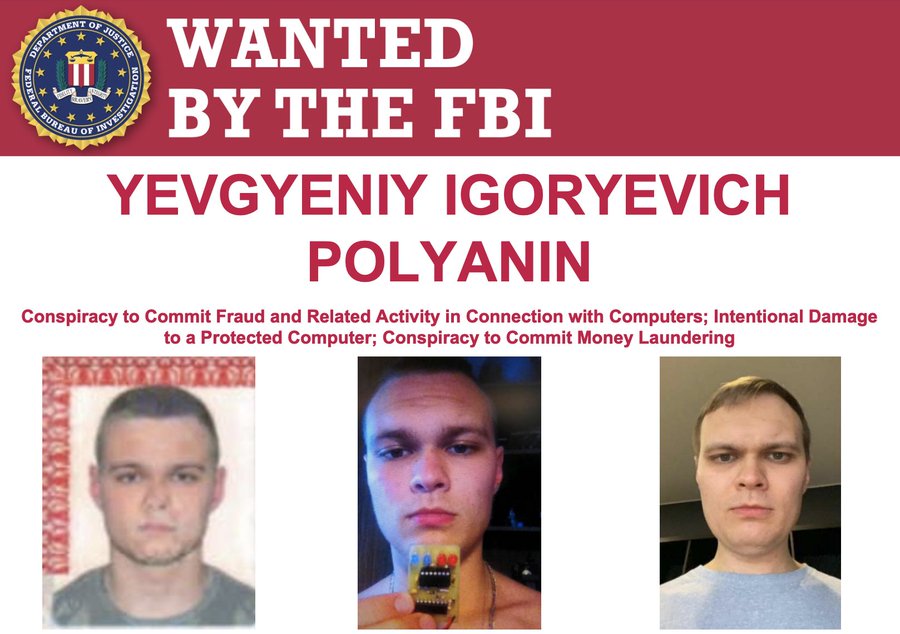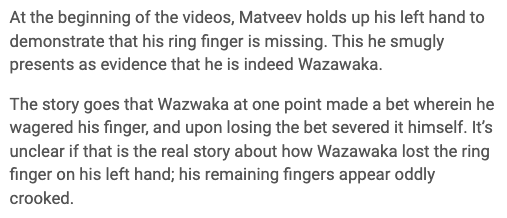In the shadowy realm of cyberspace, where anonymity reigns supreme, the notorious Russian hacker Mikhail Matveev hides. And the US government is looking for him.
Setting a bounty of $10 million, the United States government has filed a lawsuit against the “nine-fingered hacker”, accusing him of carrying out various cyberattacks on multiple US authorities and citizens.
But who is Mikhail Matveev, and what role has he played in these high-profile cybercrimes?
Matveev, a resident of Russia, has been linked to a series of ransomware attacks targeting law enforcement agencies, government institutions, hospitals, schools, and other vital infrastructure.
The attacks involved infiltrating systems, taking control, and encrypting victims’ data, which would only be released upon paying a ransom amount.
“From his home base in Russia, Matveev allegedly used multiple ransomware variants to attack critical infrastructure around the world, including hospitals, government agencies, and victims in other sectors,” said Assistant Attorney General Kenneth A. Polite, Jr. of the Department of Justice Criminal Division.
“These international crimes demand a coordinated response. We will not relent in imposing consequences on the most egregious actors in the cybercrime ecosystem.”
Russian hacker Mikhail Matveev’s hacking spree

According to the US Justice Department, the attacks conducted by Russian hacker Mikhail Matveev affected thousands of victims, both within the United States and globally. Moreover, the Matveev demanded ransom as high as $400 million from his victims.
Shockingly, $200 million was reportedly paid to him, highlighting the severity and scale of the attacks. The lawsuits filed against him have garnered significant attention, with one published in New Jersey and the other in Washington, DC.
Recognizing the magnitude of Matveev’s cybercrimes, the US State Department has offered a reward of up to $10 million for any information that leads to his capture. This extraordinary bounty underscores the severity of his offenses and the determination of the US government to bring Matveev to justice.
The indictment against Matveev alleges that he played a leading role in several ransomware gangs, including the Hive, LockBit, and Babuk groups.
Operating under various online aliases such as Wazawaka, m1x, Broriscelcin, and Uhodiransomwar, Matveev is believed to have orchestrated numerous attacks on critical infrastructure, resulting in extensive damages to computer systems and significant financial losses for victims.
Around June 25, 2020, Matveev and his associates from the LockBit group purportedly initiated the use of LockBit ransomware against a law enforcement agency located in Passaic County, New Jersey, said the Department of Justice statement.
Similarly, on or around May 27, 2022, Matveev and his coconspirators from the Hive group allegedly employed Hive against a nonprofit behavioral healthcare organization based in Mercer County, New Jersey.
Additionally, on April 26, 2021, Matveev and his accomplices from the Babuk group purportedly launched Babuk against the Metropolitan Police Department in Washington, D.C, said the statement.
Furthermore, Matveev has been accused of stealing residential addresses belonging to Washington, DC, police officers in 2021. Disturbingly, he also boasted about possessing the real names of numerous police informants, adding to the gravity of his criminal activities.
Why Mikhail Matveev is called the nine-finger hacker?
Amidst the international attention, Russian Hacker Mikhail Matveev posted a video featuring a Russian man uttering profanity-laden remarks, expressing his indifference towards the situation. The video was a response to a tweet by CNN, asking the hacker to comment on the allegations against him.
While the FBI has shared multiple pictures of Matveev, the hacker himself has not been very discreet when it comes to his identity.
Earlier last year, cybersecurity researcher Brian Krebs shared videos of Matveev. Interestingly, the cybersecurity expert revealed that the hacker appears to be missing a finger.
Matveev claims to have amputated his finger due to losing a bet. However, doubts have been raised about the integrity of this claim, as his remaining fingers seem oddly crooked.

The story of Mikhail Matveev has captured global attention, highlighting the significant threats posed by cybercriminals and the need for enhanced cybersecurity measures.
As investigations continue, the international community eagerly awaits the capture and trial of this alleged mastermind behind the ransomware attacks that have wreaked havoc on governments, organizations, and individuals alike.
With a $10 million bounty placed on his head by the US government, the hunt for Matveev intensifies. The impact of his actions and the magnitude of the ransomware attacks underscore the pressing need for enhanced cybersecurity measures to protect against such threats in an increasingly interconnected world.
